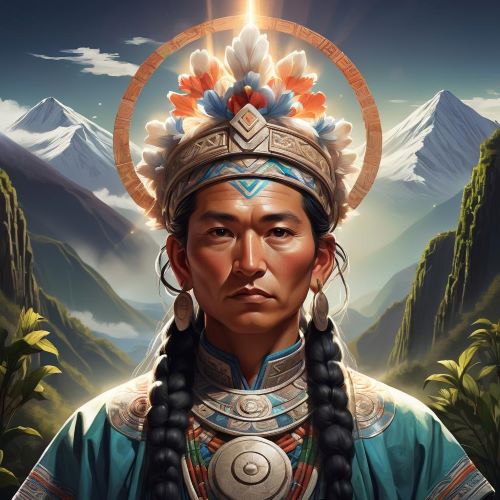Mapuche Mythology
Mapuche mythology, integral to the cultural identity of the Mapuche people of Chile and Argentina, is a rich tapestry of beliefs, legends, and spiritual practices that reflect their deep connection to the natural world and ancestral heritage. Central to this mythology is the belief in a cosmic duality represented by the forces of creation and destruction, embodied by deities such as Ngenechen, the supreme creator god, and his counterpart, the malevolent spirit called Pillan. Ngenechen is revered as the source of life and sustenance, while Pillan represents the chaotic forces of nature that can bring about destruction. This duality is a fundamental aspect of Mapuche thought, illustrating their understanding of balance in the universe and the intricate relationship between humans and the environment.
The Mapuche believe in a wide array of spirits and deities that inhabit the natural world, each with unique roles and characteristics. Among the most significant is the spirit of the earth, known as Pacha Mama, who is associated with fertility and agriculture. The Mapuche hold deep respect for nature, viewing the earth as a living entity deserving of care and reverence. This respect is evident in their agricultural practices, rituals, and festivals, which often honor Pacha Mama and seek to maintain harmony with the land. Ancestor worship is also a vital component of Mapuche mythology, as the spirits of the deceased are believed to watch over their descendants and guide them in their daily lives. Rituals to honor these ancestors are commonplace, serving to reinforce familial bonds and cultural continuity.
Mapuche mythology is rich with stories that explain natural phenomena and impart moral lessons. One such tale involves the creation of the Mapuche people from the earth itself, emphasizing their profound connection to the land. Additionally, stories of heroic figures and mythical animals, such as the powerful serpent called Tañi, play a significant role in their cultural narratives. These myths serve not only to entertain but also to educate, instilling values of bravery, resilience, and respect for nature among the Mapuche community. The oral tradition is a vital part of preserving these stories, passed down through generations and adapted to reflect contemporary issues faced by the Mapuche people.
In modern times, Mapuche mythology continues to influence cultural practices, art, and identity. Despite the impact of colonization and modernization, many Mapuche people strive to keep their traditions alive, blending ancient beliefs with contemporary realities. Rituals, music, and art often draw inspiration from mythological themes, creating a vibrant cultural expression that honors their heritage. Moreover, as environmental concerns rise globally, the Mapuche worldview, which emphasizes a harmonious relationship with nature, resonates with broader movements advocating for ecological sustainability. Through their rich mythology, the Mapuche people not only celebrate their past but also assert their identity and values in a rapidly changing world, ensuring that the teachings of their ancestors remain relevant today.

